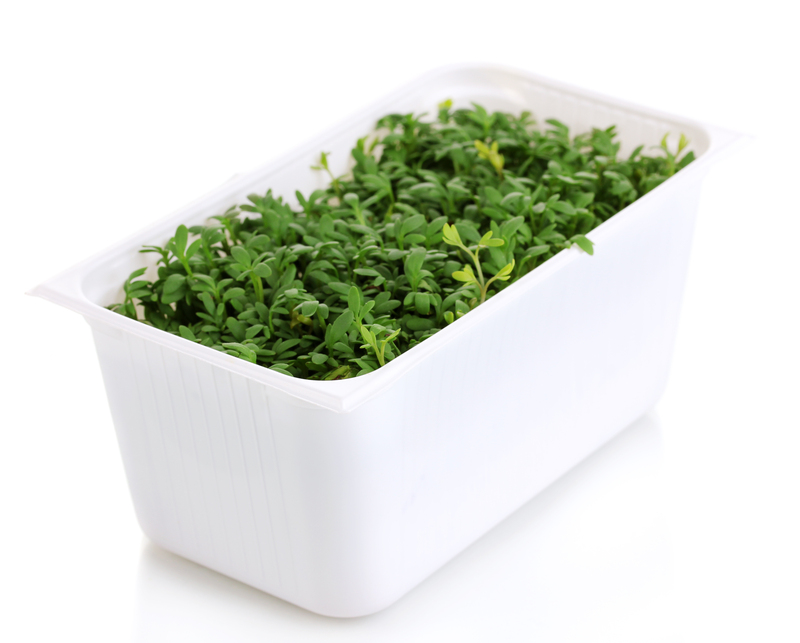The Eco-Friendly Way to Handle Waste: Rubbish Removal Bags
Managing waste responsibly is one of the pressing challenges facing our modern world. As landfills fill up at alarming rates and pollution levels continue to surge, the spotlight falls on how everyday choices--like the way we dispose of waste--impact the environment. One effective and increasingly popular solution is the use of rubbish removal bags. This article explores eco-friendly methods of waste disposal with a focus on rubbish removal bags, detailing their types, benefits, and best practices for both households and businesses.

Why Sustainable Waste Management Matters
Before diving into the details of green rubbish bags and their role in waste disposal, it's essential to understand why sustainable waste management is so critical.
- Environmental Protection: Improper waste disposal leads to land, air, and water pollution, harming wildlife and ecosystems.
- Resource Conservation: Many materials can be recycled or composted, reducing the need for virgin resources.
- Climate Change Mitigation: Reducing landfill waste curbs methane emissions, a potent greenhouse gas.
Understanding Rubbish Removal Bags
Rubbish removal bags are more than just containers for trash--they are a first step toward responsible waste management. In recent years, eco-friendly garbage bags have been designed to minimize environmental impact while maximizing convenience and efficiency.
Types of Eco-Friendly Waste Bags
- Biodegradable Bags: These rubbish bags decompose naturally under specific conditions, breaking down into harmless substances.
- Compostable Bags: Made from plant-based materials, they disintegrate in compost piles, returning nutrients to the earth.
- Recycled Plastic Bags: Constructed from post-consumer recycled material, they reduce plastic waste and demand for new resources.
- Reusable Waste Bags: Durable and washable, these bags can be used repeatedly, cutting down on single-use plastic waste.
Benefits of Choosing Eco-Friendly Rubbish Removal Bags
Switching to environmentally responsible rubbish bags brings numerous advantages:
- Reduced Environmental Impact: Eco-friendly bags don't linger in landfills for years. Many naturally break down or are fully compostable.
- Healthier Surroundings: Using non-toxic bags supports a cleaner environment and healthier communities.
- Cost Savings: Some green alternatives are reusable, which can save money over time.
- Regulatory Compliance: In many regions, laws now require or incentivize the use of sustainable waste-handling methods.
How to Choose the Right Rubbish Removal Bag
With a variety of eco-friendly waste bags available, making the right choice involves several factors:
- Material: Prefer compostable or biodegradable materials for organic waste, while recycled plastics work well for non-compostables.
- Capacity: Select bags with the appropriate volume to fit your bins and expected waste output.
- Strength: Ensure the bags are sturdy enough to handle your typical waste without tearing.
- Certifications: Look for products certified by recognized environmental standards (like ASTM D6400 for compostables).
Top Features of Eco-Friendly Garbage Bags
- Leak-Proof Construction: Prevents messy spills and leaks during rubbish collection and disposal.
- Odor Control: Some bags lock in smells, keeping your home or workplace fresh.
- Easy Tie or Drawstring: For hassle-free closing and transportation.
- Transparency or Color Coding: Helps with sorting recyclable, compostable, and landfill waste.
The Lifecycle of Rubbish Removal Bags
When assessing the eco-friendliness of rubbish removal bags, consider their entire lifecycle:
- Raw Material Sourcing: Are the materials renewable or recycled?
- Production: Does manufacturing minimize emissions and waste?
- Usage: Are bags used efficiently and for their intended purpose?
- End of Life: Can the bags be reused, composted, or recycled, minimizing landfill contributions?
How to Use Rubbish Removal Bags for Maximum Eco-Benefit
To make the most of your environmentally friendly rubbish bags, follow these practical steps:
- Separate Waste Streams: Use color-coded or labeled bags for recyclables, organic waste, and landfill trash.
- Don't Overfill: Overstuffed bags are prone to tearing and make recycling or composting harder.
- Keep Them Clean: Store bags in a dry, clean area to maximize their lifespan and performance.
- Compost Properly: Only place compostable bags in the green bin if your council or service accepts them.
Comparing Rubbish Removal Bag Options
| Type | Material | Breakdown Time | Best For |
|---|---|---|---|
| Compostable Bags | Plant-based (cornstarch, potato) | 3-6 months (in proper conditions) | Food scraps, garden waste |
| Biodegradable Bags | Some plastics mixed with organic compounds | Several months to years | General waste, non-recyclables |
| Recycled Plastic Bags | Post-consumer recycled plastic | Varies (not biodegradable) | Recyclables, landfill waste |
| Reusable Bags | Woven fabric or heavy-duty synthetic | Years (multiple uses) | Ongoing use for large waste events |
Rubbish Removal Bags in Everyday Life
At Home
- Use compostable bags in the kitchen for food waste and compost.
- Choose recycled plastic bags for regular household trash.
- Utilize reusable heavy-duty bags during garden clean-up or DIY projects.
For Businesses
- Implement a system that uses color-coded eco-friendly rubbish sacks for different waste streams.
- Partner with local waste collectors who accept compostable or plant-based rubbish bags.
- Monitor waste output and adjust bag selection to maximize efficiency and minimize environmental impact.
Troubleshooting Common Problems with Rubbish Removal Bags
- Bags Tearing Easily: Choose a thicker or stronger bag, avoid overloading, and place sharp items in separate containers.
- Compostable Bags Not Breaking Down: Ensure conditions are appropriate--most need industrial composting facilities.
- Confusion Over Which Bag to Use: Place clear signage on bins or maintain a reference chart for easy sorting at home or work.
Best Practices for Eco-Conscious Rubbish Disposal
- Rinse Recyclables: Prevent contamination by ensuring bottles, cans, and containers are clean.
- Avoid Single-Use Plastics: Reuse sturdy rubbish bags or select paper and compostable options where possible.
- Stay Updated: Local recycling and waste management rules may change; keep informed and adjust your methods accordingly.
- Encourage Participation: Get family, roommates, or coworkers involved and motivated to use eco-friendly waste solutions.
Frequently Asked Questions about Eco-Friendly Rubbish Bags
- Are compostable and biodegradable bags the same? No--while both are designed to break down, compostable bags require composting conditions and leave no toxic residue. Biodegradable bags may simply break into smaller pieces over time.
- Can I use compostable rubbish removal bags for regular trash? Yes, but their eco-benefits are highest when used for organic waste that will be composted, not landfilled.
- Are recycled plastic bags truly green? They're better than virgin plastic bags, but they're not as sustainable as compostable or reusable bags. Their advantage lies in supporting recycling systems and reducing demand for new plastic.
- How can I be sure my rubbish bags are truly eco-friendly? Look for certification labels (such as ASTM D6400, OK Compost, or Blue Angel), read manufacturer information, and check third-party reviews.
The Growing Impact of Rubbish Removal Sacks on Our Environment
*The widespread adoption of sustainable rubbish removal bags is already making a positive difference*. Many cities worldwide now mandate or encourage the use of compostable and recycled waste bags. The impacts include:
- Fewer plastics entering waterways and oceans
- A reduction in landfill-bound waste
- Cleaner urban spaces and wildlife habitats

How to Advocate for Eco-Friendly Waste Bags in Your Area
- Educate your neighbors and coworkers about the importance of using green bags and separating waste properly.
- Work with local government to support recycling and composting infrastructure that accepts eco-rubbish bags.
- Encourage retailers to stock environmentally friendly options and avoid disposable plastic bags.
- Support businesses that use sustainable waste management practices.
Conclusion: Making the Switch to Eco-Friendly Rubbish Removal Bags
As the world faces unprecedented environmental challenges, every individual and business can make a positive difference by choosing eco-friendly rubbish removal bags. Whether selecting compostable bags for kitchen scraps, recycled sacks for mixed recyclables, or reusable bins for major clean-outs, every sustainable action counts. By combining the right products with responsible disposal habits, we take meaningful steps toward a cleaner, healthier, and more sustainable tomorrow.
If you haven't made the switch to green rubbish removal bags yet, now is the perfect time. Explore local suppliers, check for eco-certifications, and start enjoying the many benefits these smart, sustainable solutions have to offer. Your commitment could inspire others, helping to spark a greener revolution--one rubbish bag at a time.
